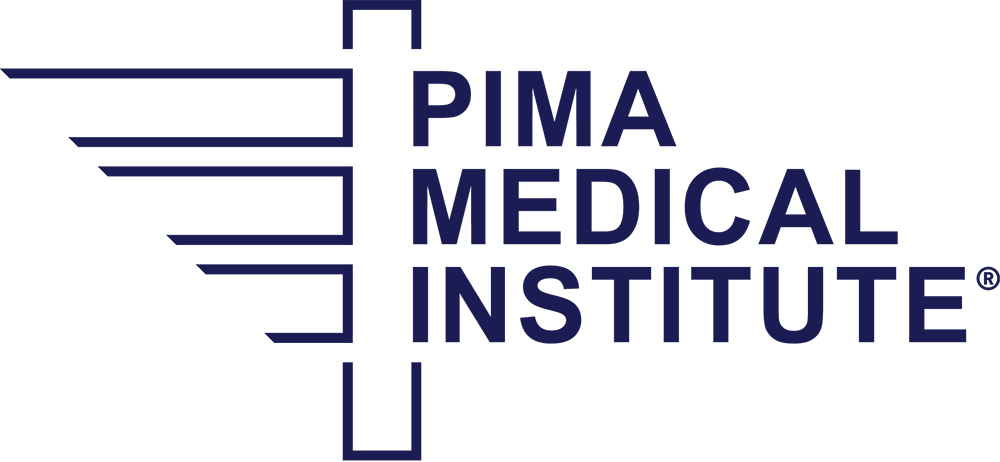Dr. Seuss’ book, Oh, The Places You’ll Go!, is an inspirational story about where life may take you, the trials you may face along the way, and how perseverance will ultimately get you where you want to be.
With the book’s positive message in mind, we’re taking a deeper look into all the places you can go as a respiratory therapist.
We asked Amy Brown, Corporate Director of Regulatory Affairs for Pima Medical Institute, and Jen Spurlin, Corporate Director of Education for Pima Medical, both Registered Respiratory Therapists (RRTs) who have years of experience in the field, to tell us about those experiences, their unique career paths, and to provide some helpful insights to assist you in the development of your own respiratory therapy career.
—
How did you first hear about respiratory therapy and decide it was the career for you?
AB: Like many other RTs, I stumbled onto and into the profession. I had worked as a middle school teacher and after starting a family, I wanted to find a career that was meaningful, had good wages and the flexibility and scalability necessary for a growing family. I initially started in a nursing program and after completing my prerequisites, I knew that respiratory therapy was a much better fit. For me, it is the perfect combination of critical thinking, patient care, science and technology.
JS: I am a severe asthmatic, and I have spent many days as a patient in the hospital. I had a life-threatening asthma attack that resulted in resuscitation and two weeks in the ICU on a ventilator when I was 14 years old. Unfortunately, during this attack, my respiratory therapist (RT) did not provide the appropriate and adequate level of patient care. That experience motivated me to become a pediatric RT who provided not only solid patient care, but also the patient perspective of what it feels like to struggle to breathe.
What advice would you give someone looking to go into this career?
AB: Don’t take shortcuts. Establish a personal code of ethics and then adhere to them. Never underestimate the tremendous impact you have on someone’s day, life, family – it’s a huge responsibility. You will make mistakes; don’t make the same mistake twice. Wash your hands, frequently.
JS: Take care of yourself! Respiratory therapy is an intense profession that affects the life and death of your patient. The profession can take a toll if you do not make it a point to relieve stress and put your health first. Also, treat every patient like they are one of your loved ones. Being a patient can be scary. It is important to connect with your patients and to comfort them.
Tell us about your career so far.
AB: I started working on the floors at Women’s and Children’s Hospital and eventually worked as a dedicated Level 1 Trauma PICU and Pediatric Cardiac Unit RT. I then worked NICU, PICU and was transport RT with AirLife Denver as part of their Neonatal/Pediatric flight team. I’ve taught at both a community college and at Pima Medical Institute’s Denver campus, where I was an instructor, clinical director, program director, and now the Director of Regulatory Operations for all of Pima Medical Institute. As a self-proclaimed RT geek, I was also on an AARC National Sputum Bowl championship team.
JS: I started working as a practitioner in the adult emergency and cardiac units in Dallas, Texas. I moved to Colorado and started working in the neonatal and pediatric intensive units and later worked for AirLife Denver. In 2004, I began teaching for the Respiratory Therapy program at Pima Medical’s Denver campus. Later, I became the director of clinical education, and eventually I became the RT program director at the campus. More recently, I have been working in the regulatory and education departments. I am thankful for all the opportunities that Pima Medical Institute has provided me.
Has your career been rewarding?
AB: It has been rewarding, exciting and at times, heartbreaking.
JS: My career has been beyond rewarding! My education and career choices have provided me numerous opportunities for professional development.
Did you have a mentor and what qualities made them a good mentor?
AB: I can’t say that I’ve had a single professional mentor; there have been many individuals who have provided guidance and served as role models through the various stages of my career. I think the focus should be on how to be a good mentee by being receptive to change, observant, and willing to accept new challenges.
JS: I have had a few mentors throughout my career that stand out. When I was a practitioner, I had a supervisor who took me under her wing and provided me with opportunities. More importantly, she believed in me and convinced me that I could do more than what came easy. However, the mentor who has impacted my career the most is Amy Brown. Amy has been my supervisor for the majority of my career at Pima Medical Institute and has always given me honest feedback that led to personal and professional growth.
What are some of your former students doing?
AB: They are teaching, researching, leading departments, flying air transport, continuing their education, working floors, ICUs, pulmonary rehab, clinical support services, sales, traveling as RTs, and providing excellent patient care to the community.
JS: I am constantly impressed by the accomplishments of Denver RT graduates. The graduates are in every RT role you can imagine – supervisors, air transport, and educators – but one of the most impactful roles is Registered Respiratory Therapist. These graduates are on the front line providing exemplary patient care and education, as well as support to families.
—
As Dr. Seuss so famously stated: “You have brains in your head, you have feet in your shoes, you can steer yourself in any direction you choose.” With a degree as a Respiratory Therapist from an accredited respiratory therapy school and the drive to make a difference in others’ lives, the possibilities for a meaningful and rewarding career are endless.
Check out AARC for more career advice about finding your perfect fit within the respiratory care field.





